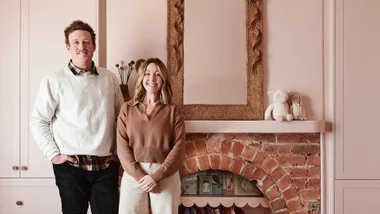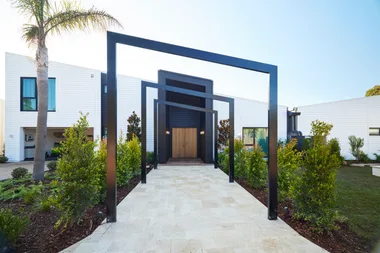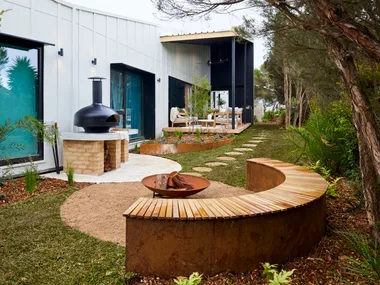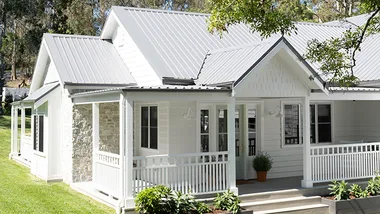Renovating a laundry can feel like a game of Tetris. Initially, there’s a blank canvas that seems like it will fit in everything you need, but as you factor in the space required for a washing machine, a dryer, bench space and storage, you quickly realise – how will everything fit?
The laundry is often the hardest working room, but in many homes, it also happens to be the smallest. That means every square millimetre matters! Whether you live in a studio, an apartment, a townhouse or a larger family home, there is always room to make a small laundry function just as efficiently as its larger counterparts. Stacking appliances, for example, can create much-needed bench and storage space. Likewise, 2-in-1 appliances that can wash and dry, will also save space.
We spoke to the experts to find out how to make a small laundry as functional, and beautiful, as possible.
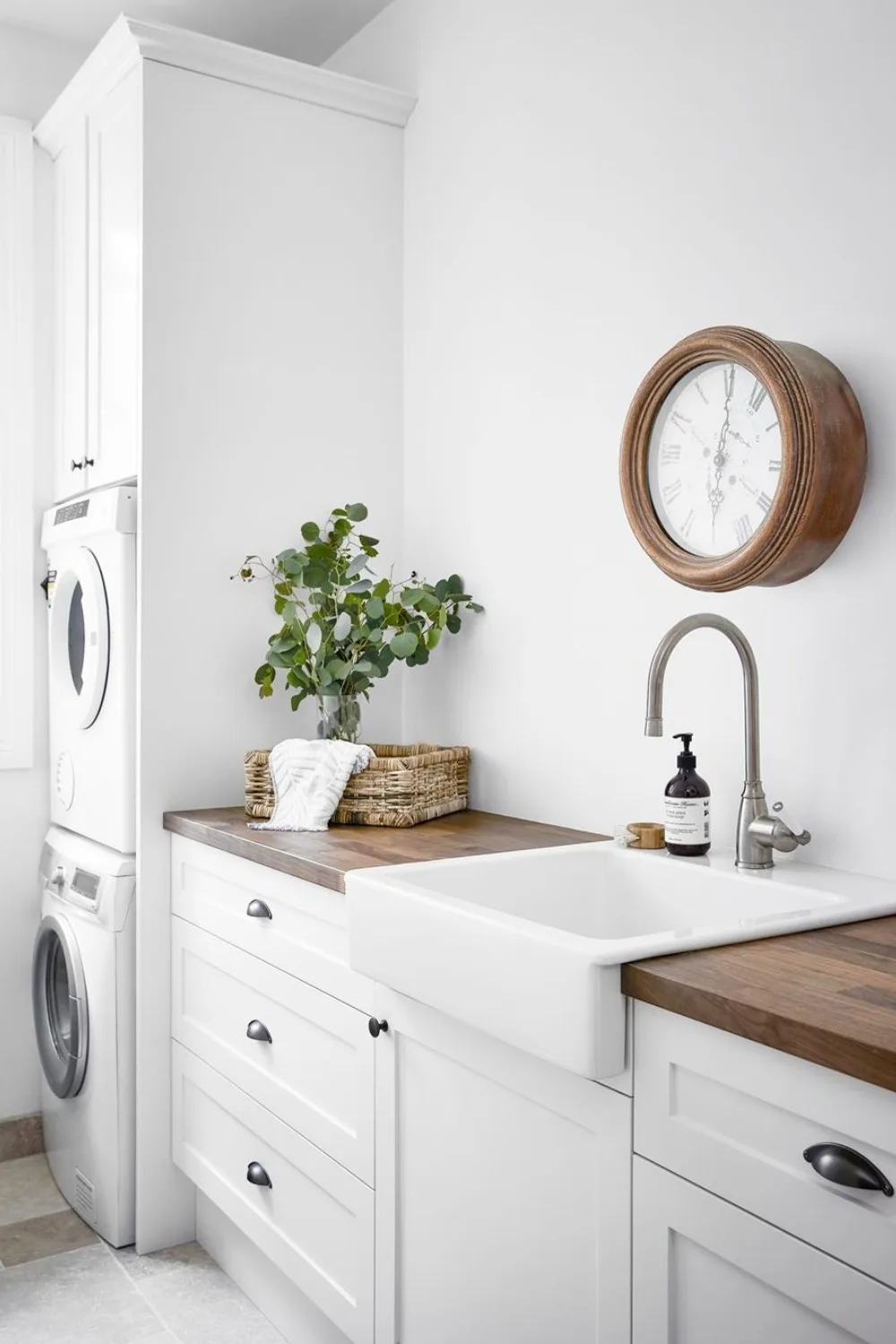
How much space do you need?
Whether you’re in an apartment, an old home or are working on plans for a new build, it’s good to know up front what is the least amount of space possible needed and what exactly is required to get a workable laundry into even the tiniest space in your home. We asked the experts for a breakdown on how small space living can work to include laundries, and what combination of appliances works well in the available space.
“Think practical and make good use of small spaces,” says Senior category manager for Winning Appliances Jordan Rogers. “Every single part of your laundry can be useful to you no matter how small, whether that means having less cupboards or a smaller sink to compensate for bench space, or room for appliances.”
“It’s definitely better to prioritise what you think you need more space for, such as washing machines and dryers, and what you may not use as much,” said Jordan.
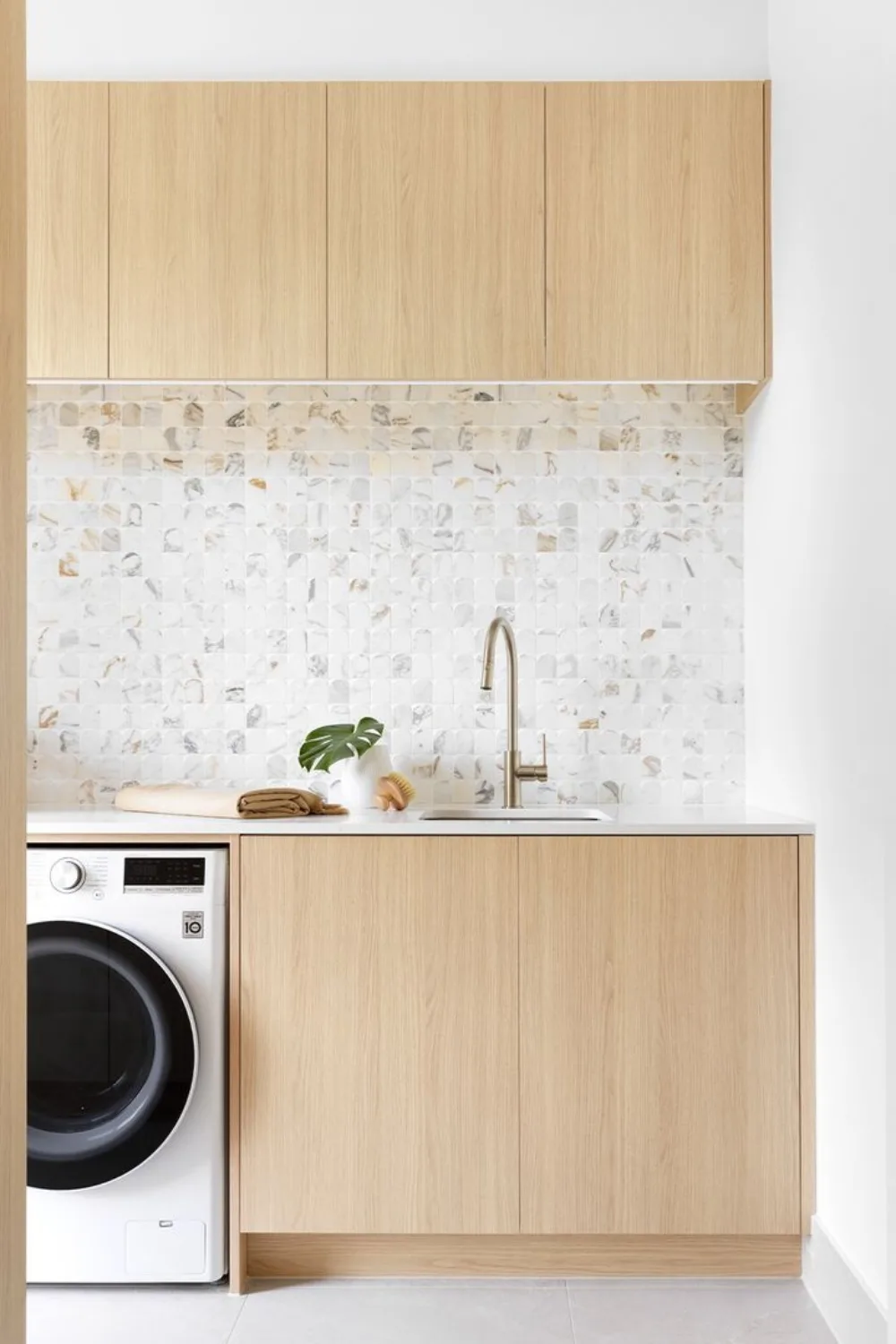
Space savers
Benchtops should be 650mm deep to accommodate a washing machine/dryer, and allow adequate space for a large sink and tap directly behind.
“It is essential to have practical sink space, with lots of room to work with and an optional drainer accessories,” Jordan suggests when considering in the planning stages of your laundry renovation process. “Adequate bench space is often overlooked for laundries, but is needed more than people think. Having easy to access powerpoints for other appliances are also a common afterthought for renovators.
A simple rail affixed between walls, or a collapsible air dryer, are ideal for hanging delicates for freshly ironed items.
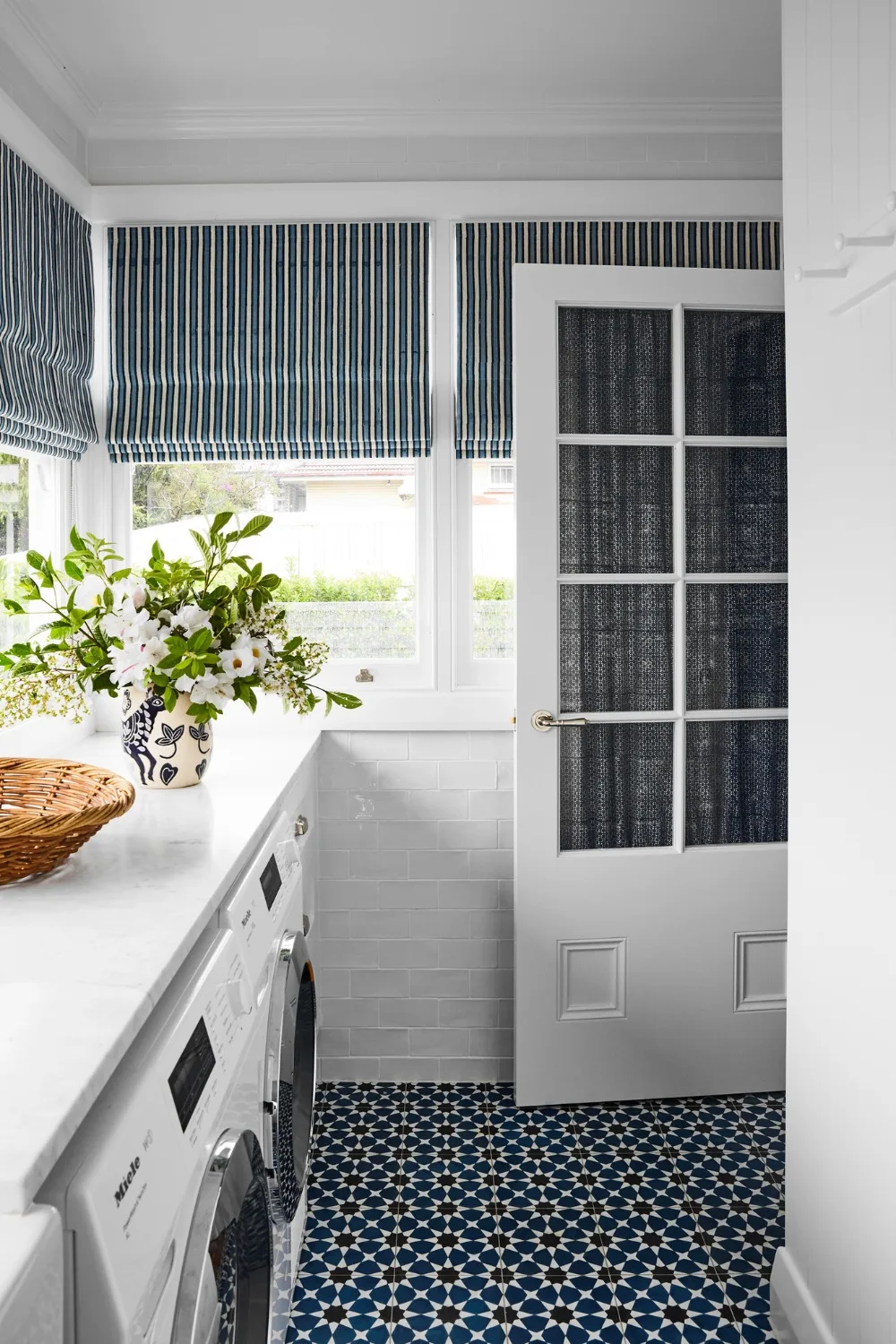
Buy once, buy well
Rather than cutting corners, it pays to future-proof as you make decisions for your laundry renovation – perhaps less likely to be updated down the track than a kitchen or bathroom.
“Always invest in quality appliances that are focussed on not only durability, but fabric care too,” says Jordan. “These items are mostly used daily, so you will always get your return on investment with quality appliances. Many brands on the market now offer 5 year + warranties on products, so it’s good to know how long your warranty is before you make any purchases.”
Get the finishes right
“It is important to choose good quality, durable materials for benchtops, wall tiles and cupboards that can handle water, steam and any other elements they may be exposed to in the laundry room,” advises Jordan.
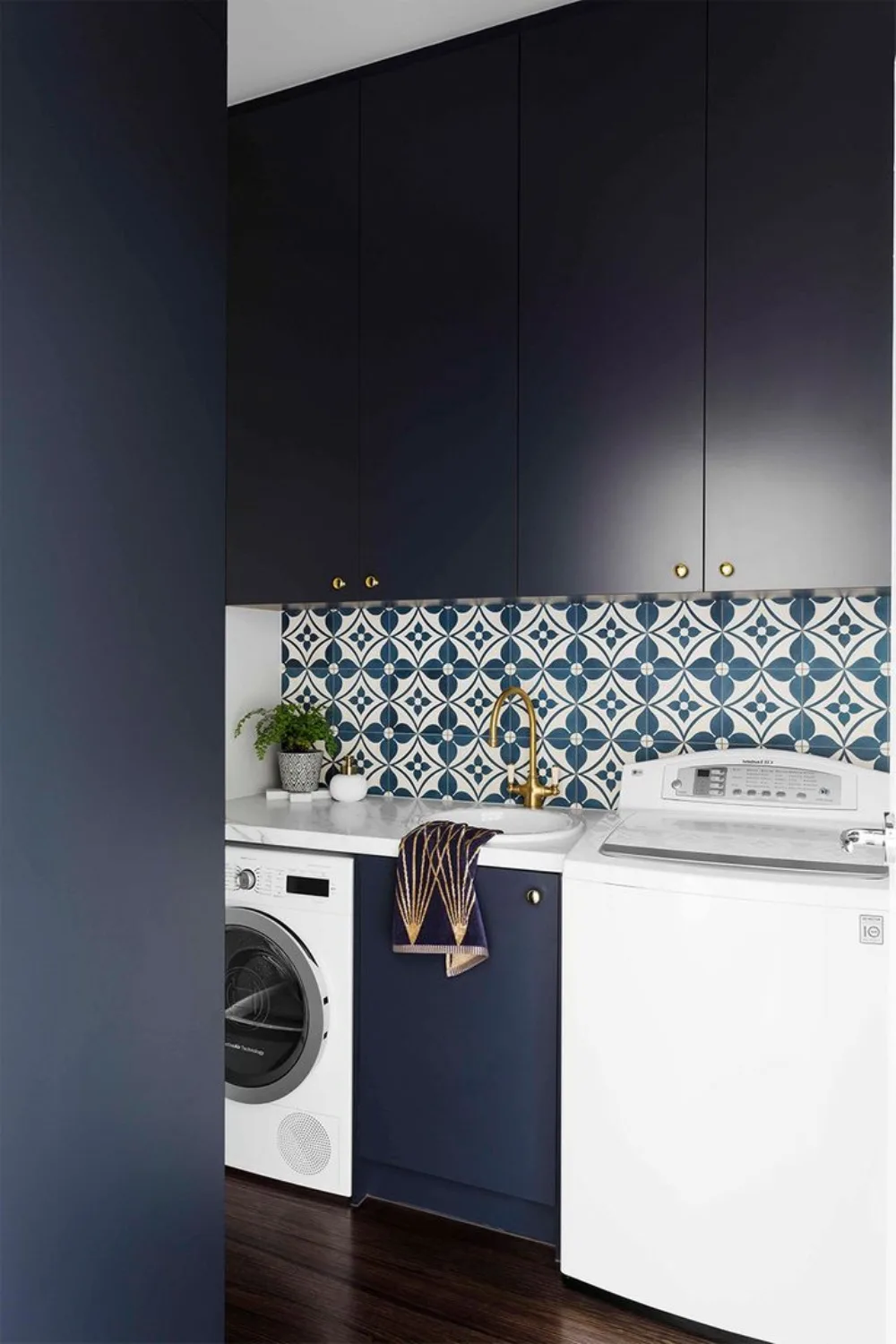
Laundry ideas for a studio apartment
“When space is limited in a studio apartment, and a laundry is simply a single appliance in a cupboard, a washer dryer combo is a two-in-one solution that will save space as well as time,” suggests Fisher & Paykel Senior industrial designer Wendy Nannestad.
“Compact all-in-one front loaders are easy to install under a bathroom or kitchen benchtop or into a hallway cupboard and will wash and dry an average load in less than three hours. And as no venting is required for installation, it means less humidity in a small studio space.”
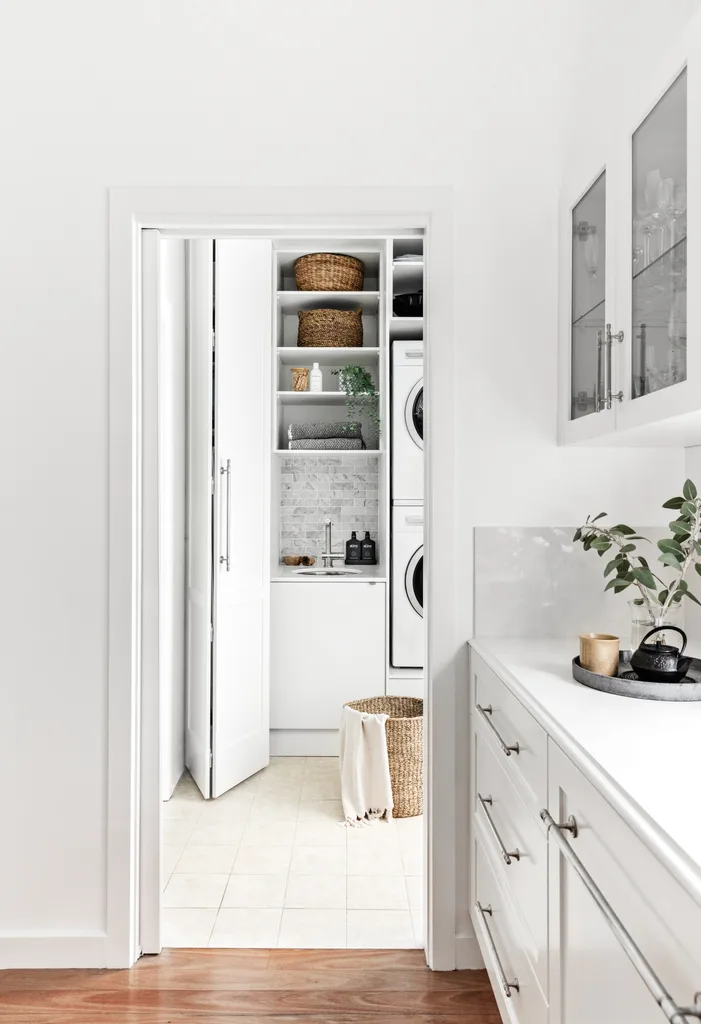
Laundry ideas for apartments and townhouses
“Space is equally valuable in apartments where washers and dryers are likewise hidden behind cabinetry,” says Wendy. “Side-by-side front-loading machines allow for usable benchtops above, or stacked machines make for efficient use of cupboard space.”
“In a townhouse there may be a small laundry room, but it’s still wise to stack front-loading appliances where possible to free up valuable floor or storage space.”
Laundry ideas for family homes
“While larger laundries offer more room to move, top-loading washing machines may be the ideal choice for meeting the demands of families who do lots of washing,” says Wendy. “Fisher & Paykel’s top-loading washer ranges in capacity from 5.5 to 10 kilograms to handle family-sized loads and bulky items, such as doonas.”
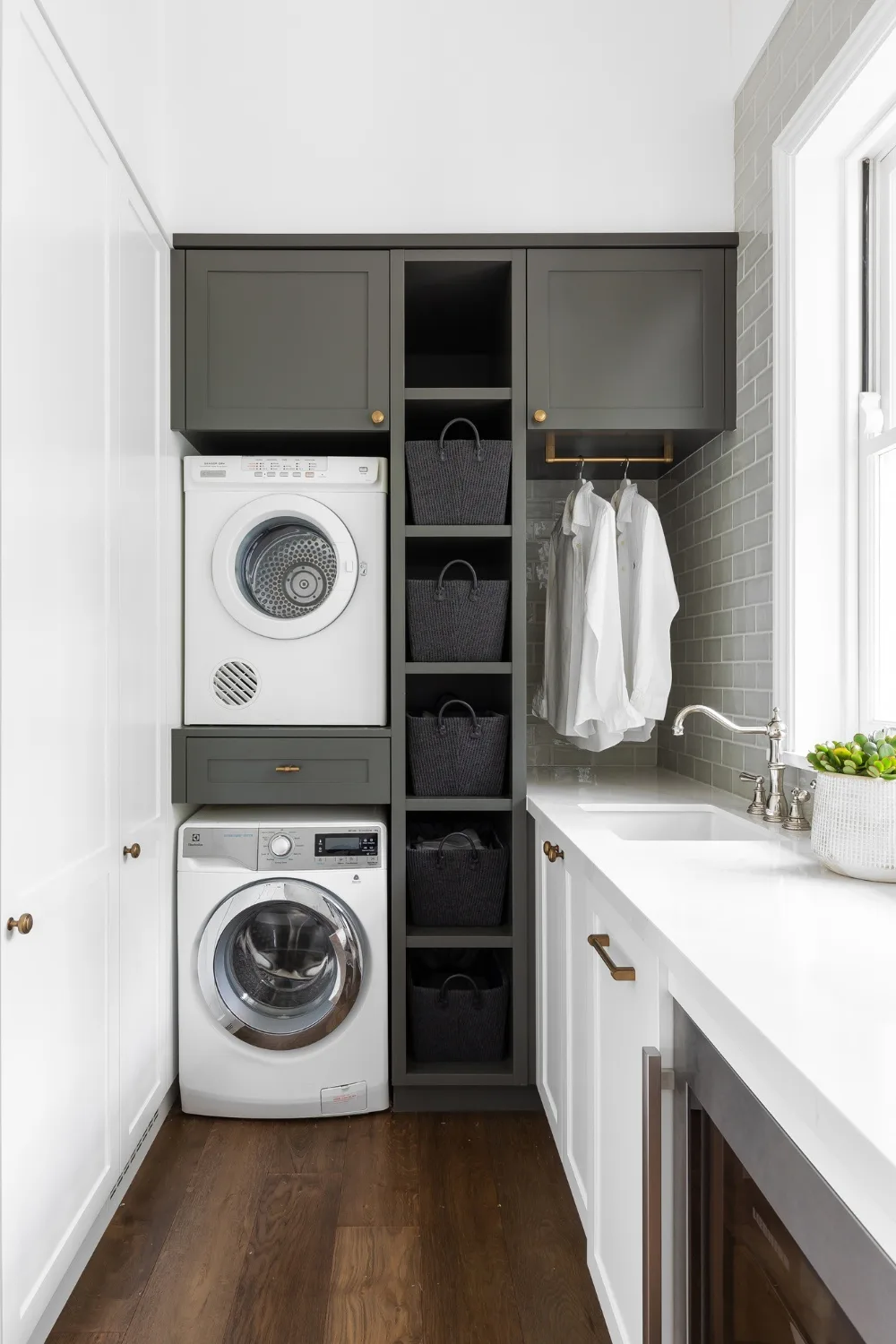
Laundry design essentials to consider
Placement
Ensure that the placement of your appliances lends itself to ease of use day in and day out.
Storage
Allow for enough storage space where you can place items, such as ironing boards and laundry baskets, out of sight, so the laundry becomes a beautiful extension of your home.
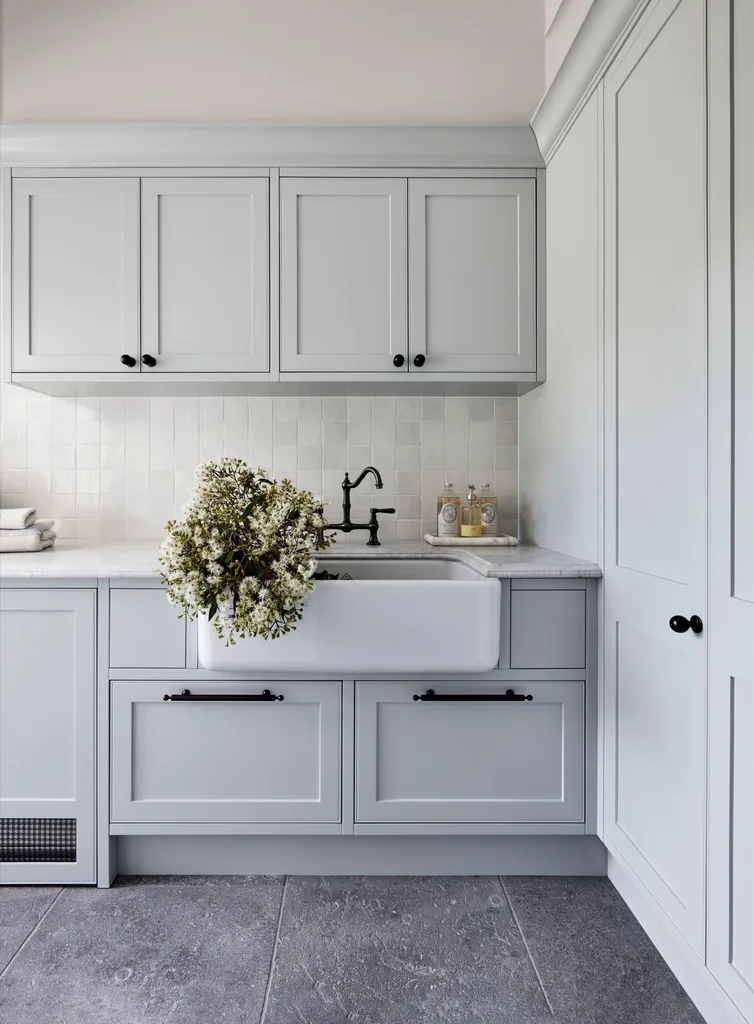
Energy and water efficiency
Energy and water efficient appliances are a must. Look for products that tick boxes of efficiency to suit both your daily needs and that of the environment. “The ASKO 10kg/10kg Laundry Package has a 5-star energy and a 5-star water rating for the washing machine and a 9 star energy rating for the heat pump dryer which are some of the highest rated laundry appliances on the market,” says Jordan.
“Appliances have hugely improved in the star rating in recent years, so getting a new washing machine or dryer that has a better rating will end up saving you money in the long run,” says Jordan.
